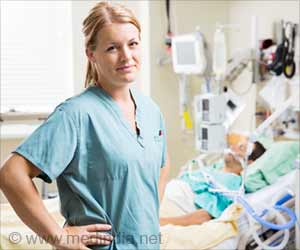Yet another International Nurses' Day has gone by but still South Africa's own nursing community is faced with numerous challenges.
"On this day we salute the nurses of South Africa and celebrate those who give so much of themselves to better the lives of others in need," said Siphokazi Phillip, international relations co-ordinator for the Democratic Nurses Organisation of South Africa (Denosa).According to Philip although there is much to celebrate the declining situation of the nursing situation in South Africa needs to be addressed by the government.
Philip said that while the population of South Africa was growing by 14 percent the nursing profession showed only a growth of 10 percent a year which has resulted in a gradual shortage of fully-qualified nursing staff nationally.
South African Nursing Council (SANC) statistics from a population survey dated December 31, 2005 has shown that there was only one auxiliary nurse for every 577 people in Gauteng.
Crucial areas of health such as, midwifery, intensive care units, operating theatres and mental health were now suffering from shortage of nursing staff.
Philip said,’Problems such as "work overload, working beyond their scope of practice and being exploited in the workplace" were increasingly causing nurses to seek employment in other sectors or overseas.
Advertisement
Poor working conditions, a high rate of violence and abuse in the workplace, lack of training opportunities and the burden of HIV and Aids were the main reasons for the shortage.
Advertisement
‘Illegal nursing education institutions are spreading at an alarming rate’, said Hasina Subedor, Registrar and CEO of SANC.
The council has to ensure that the standards of nursing education and the practice of nurses and midwives is such that the public receives knowledgeable, competent, safe and ethical nursing care with Grade 10 as the prescribed entry requirement for a course for enrolled nurses and auxiliary nurses.
SANC requires a four-year degree or diploma from one of the 95 institutions approved by the SANC is necessary to become a professional nurse.





